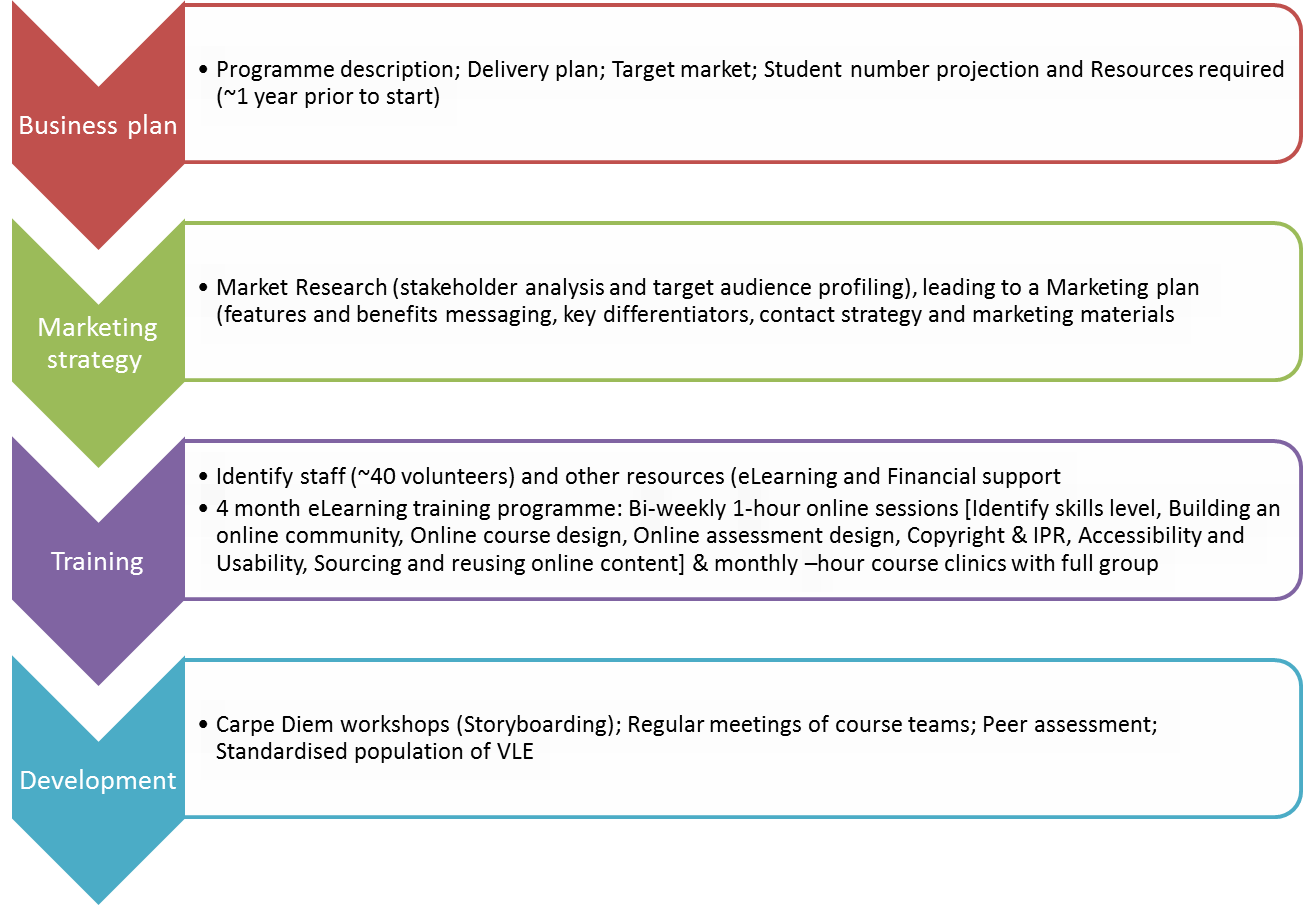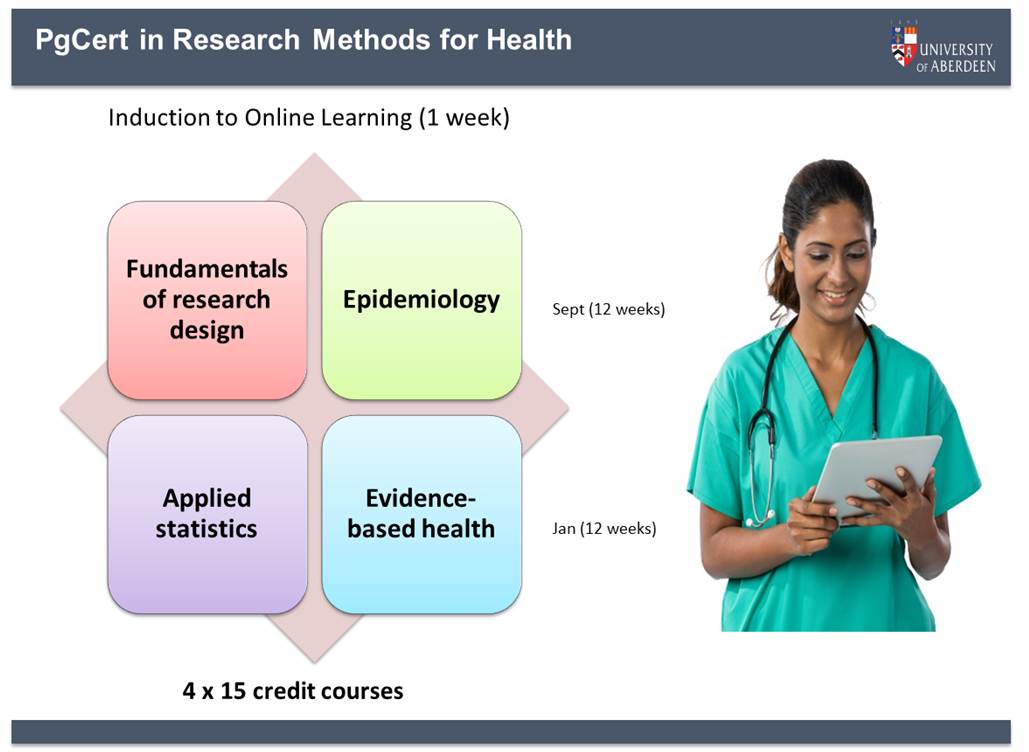Theme: eP1 ePosters 1

Title
Developing generic online courses in research methods for health
Background
The aim was to develop a GENERIC ONLINE suite of courses to:
- Introduce both quantitative and qualitative methods within the health research context giving healthcare professionals, policy makers and early career researchers the skills to critically appraise the literature and design effective and relevant healthcare research projects
- Emphasise linking methodological understanding with practical experience of research design and analysis
- Enable students to broaden their professional networks and collaborations by engaging with students from other countries and disciplines
- Improve academic writing and IT skills
- Enhance their employability and become more competitive in securing external funding
The PROCESS followed to develop the suite of courses for the PgCert in Research Methods for Health:
Take-home Messages
Lessons learnt from the process:
- Staff involved in developing online courses require training, recognition & support
- Structured and scaffolded learning material BUT needs to remain flexible
- NOT the same as face-to-face teaching (Student, Materials, Tutoring)
- Diversity of students and digital literacy needs to be considered
- Essential to provide a sense of belonging to community/group during induction
- VLE and technology restrictive
- Market research and marketing strategy is crucial
- TIME - time-consuming upfront but time-saving in the long-term
Summary of Work

The overarching pedogogical principles:
- Engagement with diverse range of world-renowned health care professionals
- Supported learning – peer & tutors
- Flexible learning – own place, pace & time
- Self-paced, but regular engagement necessary ~15 hours per week per course
- Weekly topics – structured & scaffolded
- Innovative teaching & assessment methods to encourage engagement
- Short Podcasts
- Synchronous & asynchronous discussions
- Links to relevant and current websites, books and journals
- Wikis and blogs
- Live ‘office hours’ for questions
- Electronic assessments with immediate feedback
- Formative assessment with peer & tutor support
- Electronic uploading of assignments (‘written’, poster, podcast formats)


 Send Email
Send Email
